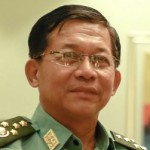On February 1, the Myanmar army seized power, turning a partial democracy into a full-fledged military rule, yet again. This creates a perception of déjà vu as one recalls 1962, 1988 and 1990, the milestone years when the generals took similar drastic actions to overthrow a democratic government or derail people’s expressed preferences.
Between March 2016 and January 2021, the National League for Democracy (NLD) led by Aung San Suu Kyi shared power with the military. This was a bold experiment to govern an intensely complex nation in Southeast Asia. Myanmar thus became a car driven by two drivers. On Monday, one driver ejected the other to take charge fully, with implications that will become clearer only with time.
Emergency or coup?
To explain the military’s actions, its spokesman pointed out that there was “terrible fraud in the voter list” in the parliamentary elections held in November 2020, and that the Election Commission “failed to settle the matter.” Claiming that this development would “obstruct the path to democracy”, the army declared an emergency, transferring all powers to Commander-in-Chief Min Aung Hlaing.
The decision seems questionable on legal and constitutional grounds. First, electoral issues need to be addressed and resolved by relevant authorities, not the military leadership. Second, Article 417 of the Constitution empowers the President to proclaim emergency, in consultation with the National Defence and Security Council. It does not seem that the Council met or presidential consent was obtained. In fact, President Win Myint and the de facto head of the government, Ms. Suu Kyi, have been detained. Therefore, the conclusion is inescapable: it is a coup d’état staged by the army in a fashion familiar to the people. But it is a coup with a difference: the party wielding half of the power decided to help itself with the other half too, regardless of the law or consequences.
Deeper reflection raises a fundamental question: what troubled the NLD-military equation in the past five years, making it an uneasy relationship which collapsed completely this week? The fact that the generals swung into action hours before the newly elected Parliament was due to hold its first session shows that discussions to resolve differences may have continued until the last minute. As they failed, the break-up became inevitable.
In this context, three fault lines may be pinpointed. First, ideologically the two segments of the political elite have been at war with each other. The army has a sense of entitlement to power on the grounds that it secured independence, defended the country against secession, and ensured stability and development. It views itself as the guardian of the state. NLD leader Ms. Suu Kyi, the other protagonist, has always expressed admiration for the army (especially because it was established and nurtured by her father), but she has been a staunch advocate of democracy, a system in which the army should be completely apolitical. Specifically, the two sides have had modest to serious differences over ethnic reconciliation, constitutional reform, the Rohingya issue, and the China policy.
Second, in political terms the fight is for power. The army has been used to exercising power for long, which yields it immense economic dividends too. Playing second fiddle to democratically elected leaders was a difficult role for it.
Third, presidential ambitions and the future of Senior General Min Aung Hlaing’s career constitute a relevant issue. Back in 2016, and even now, argue well-informed sources, he nurtured the dream to be Myanmar’s President. Ms. Suu Kyi was opposed to it. Besides, she was perhaps unwilling even to extend his tenure. He is due to retire from the army in July. Presumably the coup guarantees an indefinite extension.
The military leadership understands the people’s psyche well. The divide between the Burmans, the majority group, and the ethnic minorities remains wide. The latter are generally opposed to a strong Central government. As to the former, they are no doubt supportive of ‘Mother Suu’, but only up to a point. They are largely Buddhists and peace-loving. Hence, they might accept the grabbing of a half loaf of power from elected representatives, by the army. In areas where palpable discontent arises, the army possesses enough tools to manage situations. And Burmese jails are not short of space.
Externally, calls for an early restoration of democracy were issued predictably. This is unlikely to impress the Commander-in-Chief. The diminished international halo of Ms. Suu Kyi is an open secret. Besides, he banks on the support of only one constituency: his fellow ranking generals.
Policy of non-interference
Many worry how India, the world’s largest democracy, should cope with the forcible overthrow of democracy in a neighbouring country. This is unnecessary. Our Mandarins know how to navigate the tricky path. Institutional memories and experiences are helpful. Whenever democracy suffers, India feels concerned, even anguished. But the government is committed to the policy of non-interference in another state’s internal affairs. It is also guided by the national interest. Therefore, in managing relations with Myanmar, India will astutely balance its principles, values, interests and geopolitical realities. The visit to Myanmar last October by Foreign Secretary Harsh Vardhan Shringla and Chief of Army Staff M.M. Naravane was an unmistakable sign that New Delhi fully understood where power lay in Naypyidaw. Those takeaways will be invaluable now.
Rajiv Bhatia is Distinguished Fellow, Gateway House and a former Ambassador to Myanmar.
This article first appeared in The Hindu.


